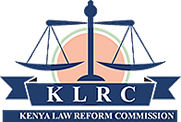COMPARATIVE STUDY
AUSTRALIA
Burial Rights
What court or person should decide who has the right to bury a body when there is a dispute?
Burial disputes are currently decided by the Supreme Court of Western Australia. Disputes about burial of Aboriginal people are often between a Perth-based party (usually a spouse) and a rural or remote-based party (usually the deceased’s family). For many Aboriginal people, being able to die and be buried in their traditional homelands is very important. Under Aboriginal customary law, the deceased person’s family usually has the right to bury the body of their relative. The family’s wishes about how and where the body will be buried will therefore come before the wishes of the deceased person’s spouse or de facto partner.
Burial rights and Australian law
Australian law says that the right to bury the deceased person lies with the person who has the highest entitlement to inherit any property the deceased person has left behind (or if the deceased person made a will, the executor of the will). In Western Australia, the person with the highest entitlement is the surviving spouse (or de facto partner) followed by the children of the deceased person, the deceased person’s parents, the deceased person’s brothers or sisters, then other specified family members.
Resolving conflict between Aboriginal customary law and Australian law
Because of the difference between customary law and Australian law, there are sometimes disputes about who has the right to bury an Aboriginal deceased person. Usually the conflict will be between the Aboriginal deceased person’s family (who wish to bury the person in their traditional Aboriginal homelands) and the deceased person’s non-Aboriginal spouse (who may wish to bury the person close to their home so that they and any children can visit the grave). There have also been cases where an Aboriginal family and an Aboriginal spouse have different views about where the deceased person should be buried. Sometimes there are two competing cultural or religious beliefs or two different sets of Aboriginal customary law that may be relevant and the family and spouse cannot come to a decision about whose beliefs should prevail.
For example, this might happen where an Aboriginal deceased person was from the Kimberley and their Aboriginal spouse was from the South West and their customary laws said different things about who had the right to bury a body. It could also happen where an Aboriginal deceased person no longer observed customary law and the spouse respected this decision, but the family still thought it was important. Courts currently do not place much emphasis on cultural beliefs or customary law when they are asked to decide who has the right to bury a deceased person. Judges have said that they find it difficult to decide between the claims of families and spouses where both parties have very strong and genuine cultural beliefs. Judges must make a quick decision in these cases because Aboriginal people generally want to bury their loved one at the earliest opportunity so that his or her spirit can be at rest. Judges are therefore under a lot of pressure to decide who should have the right to bury the deceased person.
SOUTH AFRICA
In South Africa, there is no legislation on who should have the responsibility of burying the deceased.
Conflicting claims regarding the rights to bury a deceased have all too often given rise to litigation in South Africa. There are a number of decisions in point. These are for the most part collated in Gabavana & another v Mbete & others [2000] 3 All SA 554 (THC). These decisions boil down to the finding that the heir of the deceased estate shall be the person who decides on the arrangements surrounding the burial of the body. Where a deceased leaves a will, but without explicit indication as to whom shall be responsible for the burial arrangements, it could well be the implicit intention of the testator that such arrangements be effected by those who inherit his earthly goods.
However, courts have developed a mode incase of a dispute of burial. The Right to bury a deceased is to be reconsidered in light of constitutional development, multiplicity of heirs, Wishes of deceased, wishes of widow and children, family relationships and fairness.
In TITI GLADYS MAHALA v NOLILI NKOMBOMBINI AND ANOTHER Case No: 10861/2005IN THE HIGH COURT OF SOUTH AFRICA (SOUTH EASTERN CAPE LOCAL DIVISION)
The application concerned the right to dispose of the body of the deceased. The applicant sought an order declaring that she is entitled to bury the body of the deceased. The application was opposed by the first respondent, the mother of the deceased. The applicant stated that she and the deceased were married to each other by way of customary union, which marriage relationship subsisted until the deceased’s death. Three children were born of this relationship. She stated that the deceased was very close to her children and saw them on a regular basis. She, further, stated that during his lifetime the deceased and his mother did not have a close relationship. She claimed, for these reasons, to have a clear right to arrange the funeral of the deceased and to decide where and when the body should be buried.
The court stated that where the deceased dies intestate, there can be little problem where there is a single heir. Problems however arise where there is a multiplicity of heirs. In such circumstances there should be no hard and fast rules. Each case is to be decided on its own particular circumstances. Common sense shall largely dictate the decision of the court. The court shall have regard to the family relationships of the deceased, as well as all other relevant circumstances. The court shall take account of the practical considerations. Having regard to all the circumstances, granted the application.
